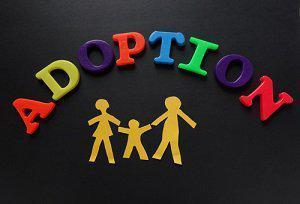Adoption in Illinois
 Adoption is one of the ways family law works to create happy, healthy families. The laws that govern the adoption process are in place to create a balance between the rights of biological parents and what is in the best interest of children. Legal adoption is when someone who is not the biological parent becomes the legal parent of the child, with the same rights and duties as if the child had been born to them.
Adoption is one of the ways family law works to create happy, healthy families. The laws that govern the adoption process are in place to create a balance between the rights of biological parents and what is in the best interest of children. Legal adoption is when someone who is not the biological parent becomes the legal parent of the child, with the same rights and duties as if the child had been born to them.
Paths to Adoption
There are three major ways an adoption process can be completed:
- The adoption can be voluntary;
- It can be by consent of the child’s parents; or
- It can be ordered by a court.
Illinois also allows adults to be adopted in some circumstances.
Typically, the biological parents of children must agree to the adoption. The exception to this would be if the parental rights of the biological parent or parents have been terminated because they were unfit parents. If a biological parent objects, it can sometimes result in a court case where a judge must decide what is in the best interests of the child.
Types of Adoption
Illinois has five different types of adoption. In Illinois, it does not matter if you are married or single, when seeking to adopt a child. You do have to be at least 21 years of age and demonstrate that you are a fit parent and that your adoption of the child would be in the best interest of the child.
The five types of adoption in the state are:
- Adult adoption;
- Related adoption. These are cases such as stepparent or grandparent adoptions where there is a preexisting relationship with the child;
- Unrelated adoption. These are situations where the prospective adoptive parent has no pre-existing relationship with the child;
- Agency placement adoption. This is where a child is placed with an adoptive couple by a state or private, licensed, adoption agency; and
- Private adoption. This is when the biological parents place a child with a parent or parents they agree should adopt the child.
The way each type works will be slightly different. In agency adoptions, it is common that these children have been in foster care and their biological parents are deceased or have had their parental rights terminated. Most other proceedings rely heavily on the consent of the parents.
If you have questions about adoption, or any other family law issues, contact an experienced Arlington Heights family law attorney at A. Traub & Associates. Call today to schedule a consultation. Nothing is more important than your family.
Source:
http://www.ilga.gov/legislation/ilcs/ilcs3.asp?ActID=2098&ChapterID=59















